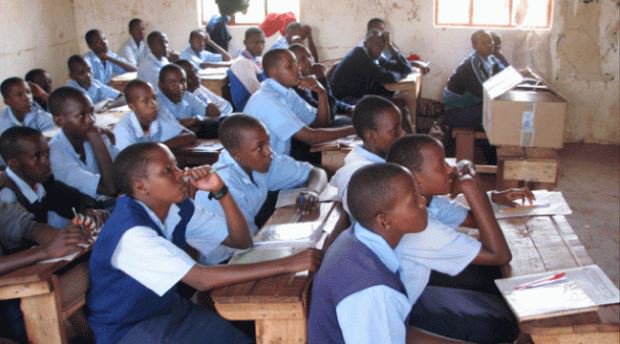 Although the revised nine-year basic education curriculum was launched by the Nigerian Educational Research and Development Council (NERDC) in 2014, it only began making headlines in 2017.
Although the revised nine-year basic education curriculum was launched by the Nigerian Educational Research and Development Council (NERDC) in 2014, it only began making headlines in 2017.
In a statement released in 2013, the council had said the curriculum was revised to keep pace with global trends.
“Since the societal needs and aspirations are continually changing, the curriculum content should, of necessity be dynamic, reflecting at every point in time the contemporary and anticipated societal values, needs, challenges and aspirations,” it said.
“Consequently, schools curricula need to be constantly reviewed to keep pace with global trends and developmental changes in the society.
“Delegates at the presidential summit on education held in October 2010 particularly recommended a reduction in the number of subjects offered at the basic education level to between six and 13 subjects. Consequently, NERDC was mandated to revise the nine-year basic education curriculum (BEC) in line with the recommendations of the summit.”
The Christian Association of Nigeria (CAN) and Pentecostal Fellowship of Nigeria (PFN) have rejected the revised curriculum, with CAN describing it as a time bomb.
While addressing the press at a meeting of the PFN, David Oyedepo, general overseer of Winners Chapel International, had argued that exemption of Christian religious studies from the curriculum would affect those who have the intention of studying it at tertiary levels.
In response to the various statements, Ismail Junaidu, NERDC executive secretary, had said that Christian religious knowledge (CRK) had not been removed from the curriculum, but the controversy still raged.
Felix Omobude, PFN president, alleged that in some parts of the country, getting a French teacher is a long shot and administrators compel students to choose Arabic language in the absence of French.
WHERE THE CONTROVERSY LIES
The copy of the curriculum available on the NERDC website shows that primary 1-3 students will offer a minimum of six subjects and a maximum of seven.
For the religion and national value section, the NERDC highlighted: “Listed components will serve as themes in the Religion and national values curriculum.
“Contents are planned for all children to take social studies, civic education and security education themes
“Separate classes should be run for CRS theme and IS theme.
“Consumer education, disaster risk reduction education and peace and Conflict Resolution curricula are infused into the civic education, social studies and security education themes.
“Create enabling environment for the subject in all schools.”
The last item on the curriculum is Arabic Language and the NERDC says it is optional.
The same provision applies to Primary 4-6.
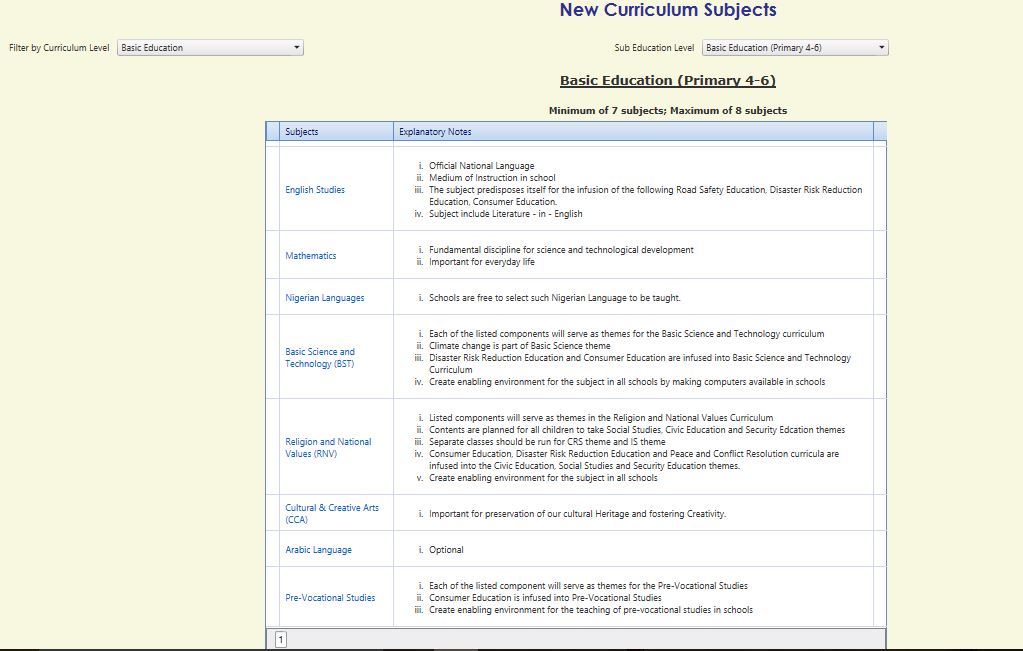
Primary 4-6 Curriculum
For the junior secondary school, students are expected to take a minimum of nine subjects and maximum of 10. For the religion and national value section, the provisions are the same as with the primary curriculum.
The curriculum listed Arabic language as optional and French as a subject.
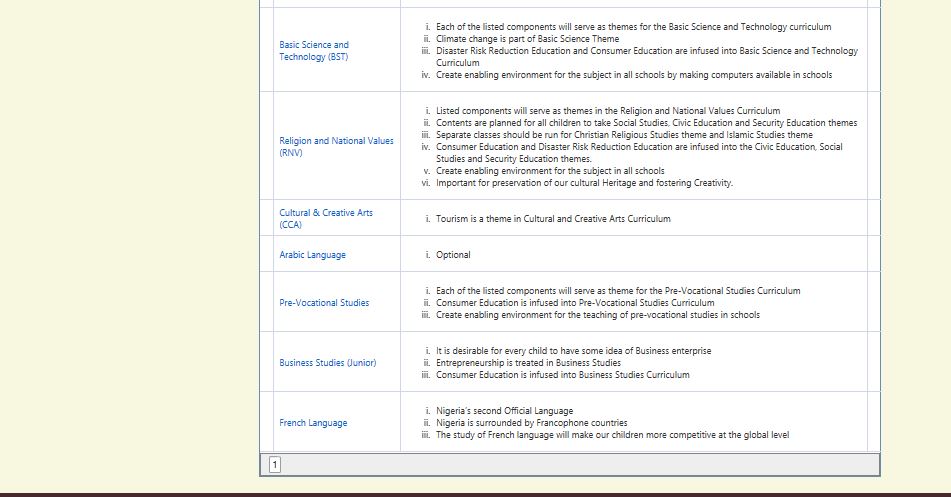
JS 1-3 Curriculum
In the senior secondary category, none of the religious subjects was mentioned though the curriculum gave room for school administrators to make the decision with the provisions in the humanities category.
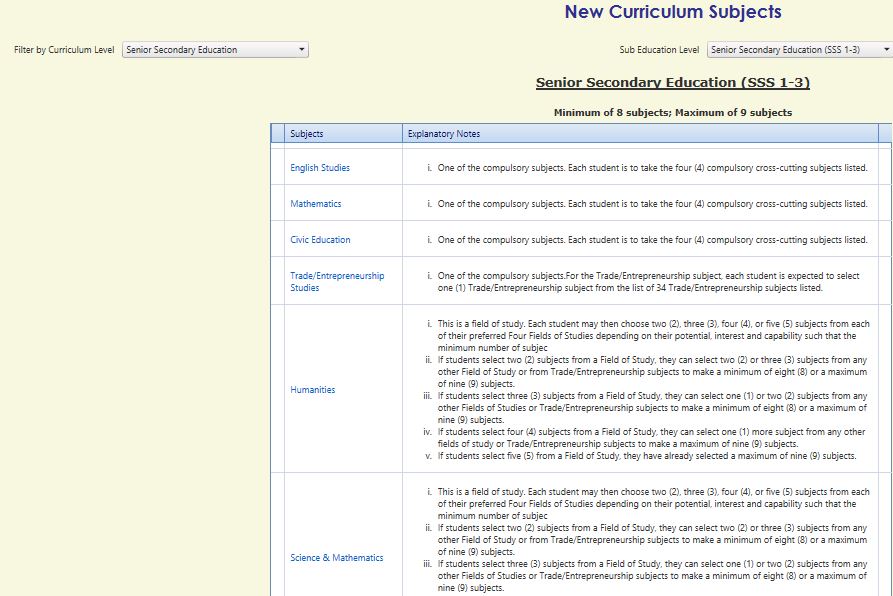
SS 1-3 CurriculumA
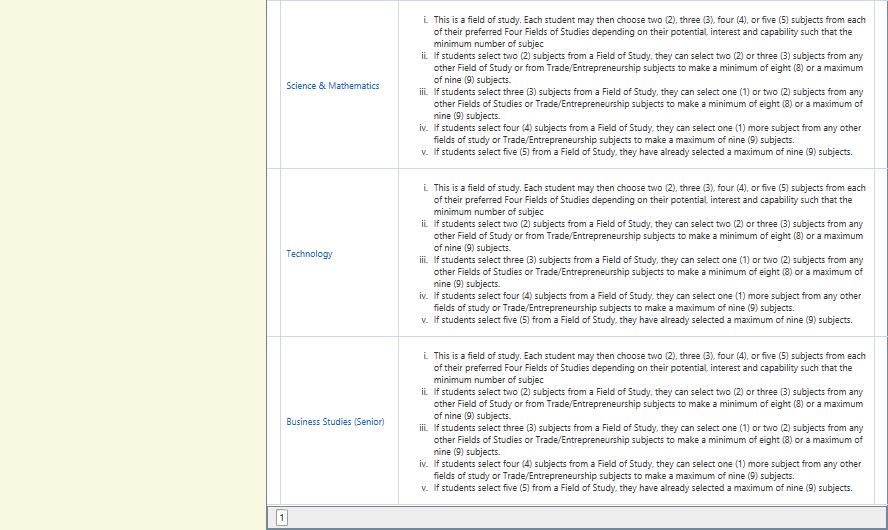
SS 1-3 CurriculumB
On its website, the NERDC lists Arabic language as an optional subject and the curriculum does not give any explanation about the manner in which Arabic language would be taught in.
A look at the electronic curriculum on the website shows that Arabic language is a subject to be taken by students till SS3 contrary to the UBEC curriculum where Arabic is not listed as a subject,.
TheCable also noticed that Christian Religious Studies and Islamic Studies were listed as separate subjects and not grouped as National and Religious Values as listed in the curriculum.
A closer look at the topics listed under Arabic language revealed that some of the topics listed had Islamic themes like ‘the morality of the Prophet’ in SS1.

Courtesy: THE CABLE







